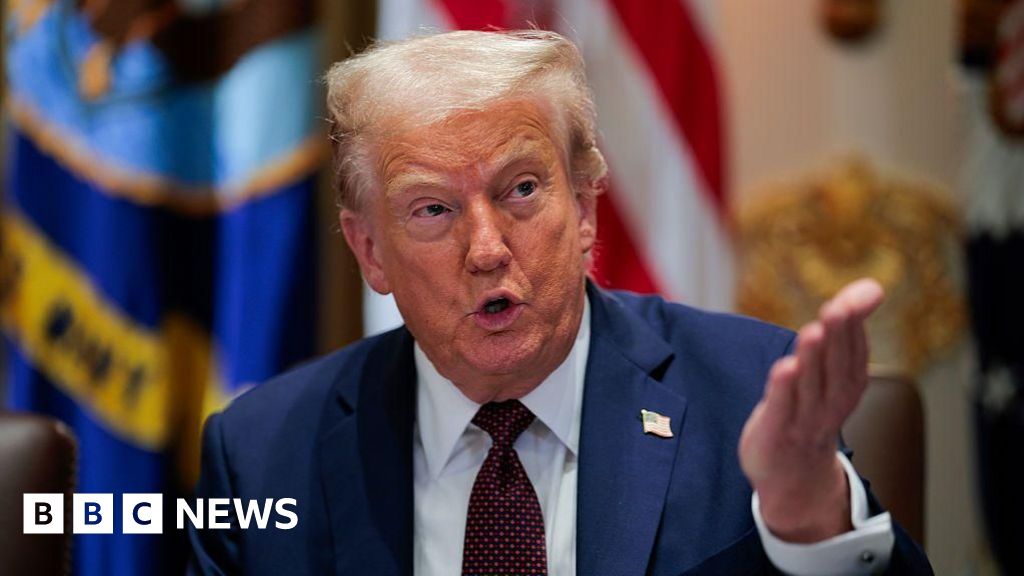Trump calls for death penalty for murder cases in US capital
- BBC News
US President Donald Trump has said he plans to seek the death penalty for suspected murderers in Washington DC.
Speaking during a cabinet meeting at the White House, Trump said that the death penalty would be a "preventative" measure.
Hundreds of National Guard and federal law enforcement officers have been deployed to the US capital to combat what Trump has previously described as "complete and total lawlessness" in the city - a strategy he has hinted could be repeated in Chicago and other cities.
Washingtons mayor, Muriel Bowser, has rejected the presidents claims about crime, which has fallen in the city since spiking in 2023.
"If somebody kills somebody in the capital, Washington, DC, were going to be seeking the death penalty," Trump told reporters and cabinet members. "And thats a very strong preventative."
Most murders in Washington DC are prosecuted under local law, although prosecutors can - in theory - seek the death penalty for crimes that fall under federal laws.
The death penalty, however, can only be used if the jury agrees, posing a potential challenge in a city in which most residents are opposed to capital punishment.
The president did not provide further details on how he would seek to implement the change.
Trump re-instated the federal death penalty through an executive order on the first day of his administration in January.
Under his predecessor, Joe Biden, the justice department had issued a moratorium on the federal use of the death penalty.
The January executive order signed by Trump describes capital punishment as "an essential tool for deterring and punishing those who would commit the most heinous crimes and acts of lethal violence against American citizens".
"Before, during, and after the founding of the United States, our cities, States, and country have continuously relied upon capital punishment as the ultimate deterrent and only proper punishment for the vilest crimes," it added.
The majority of executions in the US are carried out on the state level, with 27 states, the military and the federal government still having capital punishment as a legally available option.
Washington DCs death penalty was nullified by the Supreme Court in 1972 and repealed by the city council in 1981.
Decades later, in 2002, the citys residents voted overwhelmingly against capital punishment in a referendum placed on local ballots by the Republican-controlled US Congress.
While no federal executions have been carried out since Trump returned to office, he oversaw a flurry of 13 executions in the waning months of his first term in late 2020 and January 2021.
Those executions made Trump the countrys most prolific executioner in over a century, and broke with an 130-year-old precedent of pausing executions amid a presidential transition.
The last execution came just five days before he left office in January 2021.
The presidents comments come as approximately 800 National Guard troops and hundreds of federal officers deployed in Washington DC amid a crackdown on crime and homelessness, even as local officials have questioned the need for federal intervention in the city, with Mayor Bowser pointing to a "huge decrease in crime" that she claimed was at a "30-year violent crime low".
In recent days, Trump has repeatedly floated the idea of deploying troops to other cities such as Chicago and Baltimore, both of which are run by Democrats.
"Im willing to go to Chicago, which is in big trouble," Trump said at the cabinet meeting.
The governor of Illinois, JB Pritzker, has accused Trump of "attempting to manufacture a crisis".